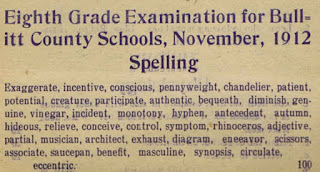From "Legally Speaking: Putting Legalese on the Endangered List," John G. Browning, The South East Texas Record
The U.S. government came out with a new law recently. Previously, the feds might have described it like this:
“Pursuant to regulations promulgated hereunder and commencing in accordance with the statute signed herein by President Barack Obama, the federal government shall be precluded from writing the pompous gobbledygook heretofore evidenced, to the extent practicable.”
Confusing enough? Now, under the Plain Writing Act, the U.S. government has to adopt a new approach in writing documents produced for the public—speaking in plain English.
[In 2010], President Barack Obama signed the Act. By July, each federal agency must have a senior official charged with overseeing plain writing and must describe on its website the efforts it is making toward writing in clear, easy-to-understand English.
The law will be in full effect this October, when all new or substantially revised documents produced by the government for the public must be written in plain English (don’t worry, bureaucrats proficient in government double-speak: you will still be allowed to speak in your nonsensical tongue when writing internally).
Cass Sunstein, a member of the Obama administration and prominent legal scholar, says “It is important to emphasize that agencies should communicate with the public in a way that is clear, simple, meaningful and jargon-free.”
The benefits of improving government writing are obvious, according to Sunstein.
Poorly written directives, he says, discourage people from applying for benefits they’re entitled to, make the rules hard to follow, and ultimately waste money and resources because of time spent explaining things to confused citizens and fixing avoidable mistakes.
Annetta Cheek, the chairwoman of the Center for Plain Language and a writer of federal regulations during the Clinton administration, helped author the new government guidelines for plain writing.
As she points out, federal employees have a tendency to write with their bosses and government lawyers in mind rather than the public.
“Most of what the government writes has too much stuff,” she says.
The average person just wants to know ‘what are you doing for me or to me?’”
Government writing will never be confused with great literature; as Cheek’s guidelines for federal writers acknowledge, “People do not curl up in front of a fire with a nice federal regulation to have a relaxing read.” However, Cheek says, the government can certainly do a better job communicating requirements, how to obtain benefits, health and safety tips, and other helpful information.
What will these changes mean for you? For starters, you won’t see statements like this:
“Timely preparation, including structural and non-structural mitigation measures to avoid the impacts of severe weather, can avert heavy personal, business and government expenditures. Experts agree that the following measures can be effective in dealing with the challenges of severe winter weather.”
Instead, you’ll probably see something like this: “Severe winter weather can be extremely dangerous. Consider these safety tips to protect your property and yourself.” (more)
So what do you think? Is this about transparency? Or is it a reflection of where we are now, as opposed to a time when our expectations were this?

